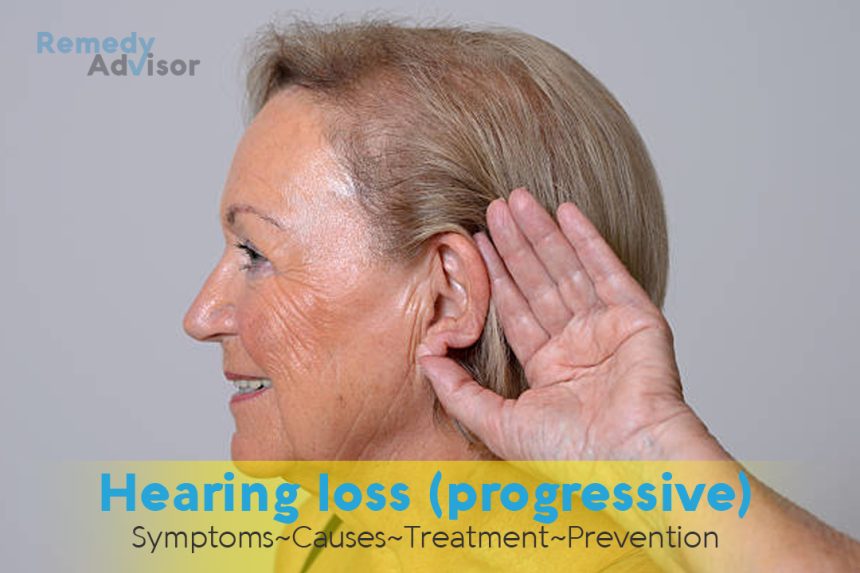What is it
A loss of hearing can strike people at any age, but most cases affect older people in fact, it is the third leading chronic health complaint among older adults, after arthritis and high blood pressure. Even though the ear is a remarkable piece of sound-receiving equipment, designed to last for decades without repair or replacement parts, with age it inevitably grows less acute. The first sign of trouble is often difficulty hearing high-frequency sounds, like birds singing or children’s voices.
At the same time, age-related hearing loss is occurring at younger ages these days because of exposure to sounds that have become a part of modern life rock concerts, headphones, stereo equipment, jet planes, jack hammers, and dozens of other noisemakers that create decibel levels capable of wearing out the extremely sensitive receiving equipment in our ears.
It isn’t easy to admit to hearing impairment; it’s too often taken as an embarrassing sign of old age. But the truth is that most people suffer some degree of hearing loss after age 50 and for half of all men and a third of all women over 65, hearing loss is advanced enough to make social communication difficult.
Called presbycusis, from the Greek meaning “old hearing,” this age-related degeneration of the inner ear results in lowered sensitivity to high frequencies (you don’t catch those high notes or the doorbell the way you once did) and a loss in the ability to discriminate among speech sounds (people seem to mumble). Or you may be aware of a persistent low hiss or ringing in the ears. Any one of these symptoms should send you to your doctor for advice. Some of this hearing loss is preventable, and much of it is modifiable.
Symptoms
- Progressive loss of hearing after exposure to loud noises or with age.
- Difficulty hearing high-frequency sounds.
- Difficulty distinguishing words during conversations, especially when in noisy or crowded circumstances.
- Difficulty hearing over the telephone.
- A need to turn up volume controls on televisions, radios, and other sound equipment.
What causes it
Damage to fine specialized hair cells and other sound-sensing structures in the ear underlie most cases of presbycusis. A common cause or at least a common accelerator of this damage is excessive noise. Medical conditions and certain medications can also contribute to hearing loss. Another cause of impairment is conductive hearing loss, which occurs when earwax or fluid builds up in the ear canal and interferes with the functioning of the outer and middle ear, or when an infection in the inner ear blocks sound wave transmission from the eardrum to the inner ear.
What if you do nothing
Some cases of hearing loss are temporary for example, the buzzing you may experience after attending a loud rock concert or being exposed to some other loud noise for several hours. In this instance, a night of rest usually restores nor- mal hearing. But hearing loss due to presbycusis is permanent, as are other types of hearing loss, and these require a doctor or other specialist to identify and treat the underlying cause.
Home remedies
Most hearing problems can be alleviated by a hearing aid (though only about one-third of those people who need hearing aids actually have them). Usually, having one device for each ear is most effective. Before you buy a hearing aid, see your doctor In addition, take these steps to cope with difficulty hearing.
Don’t be shy
Ask people to repeat or slow down if you don’t understand.
Cut out background noise
Turn off the radio or TV during conversation.
In noisy places
Station yourself near sound absorbent surfaces (curtains, books, or upholstered seating) and stay clear of echoing expanses of plaster and glass.
Prevention
There are many commonsense ways of avoiding hearing loss.
Turn down the headphones
When wearing headphones, never use the music to drown out other noise. If you want to use headphones while your companion watches the ball game on television, perhaps you should move to another room rather than compete with the television noise. If you’re on a bus that is making a deafening racket, lay your headphones aside. If you can’t hear any sounds around you, you’ve got the volume too high.
Avoid excessive noise
If background noise in any setting drowns out a normal conversational voice, you should try to escape or reduce the noise as soon as you can. If you have to shout to be heard, something is wrong. If you must be exposed to high noise levels while you are working or commuting, give your ears a break during leisure time. Don’t go to the noisiest restaurant or nightclub in town.
Use earplugs
If you have to be in noisy environments frequently, carry a pair of earplugs and use them. They won’t keep you from hearing a concert, for example; they’ll just keep the decibels from damaging your ears.







